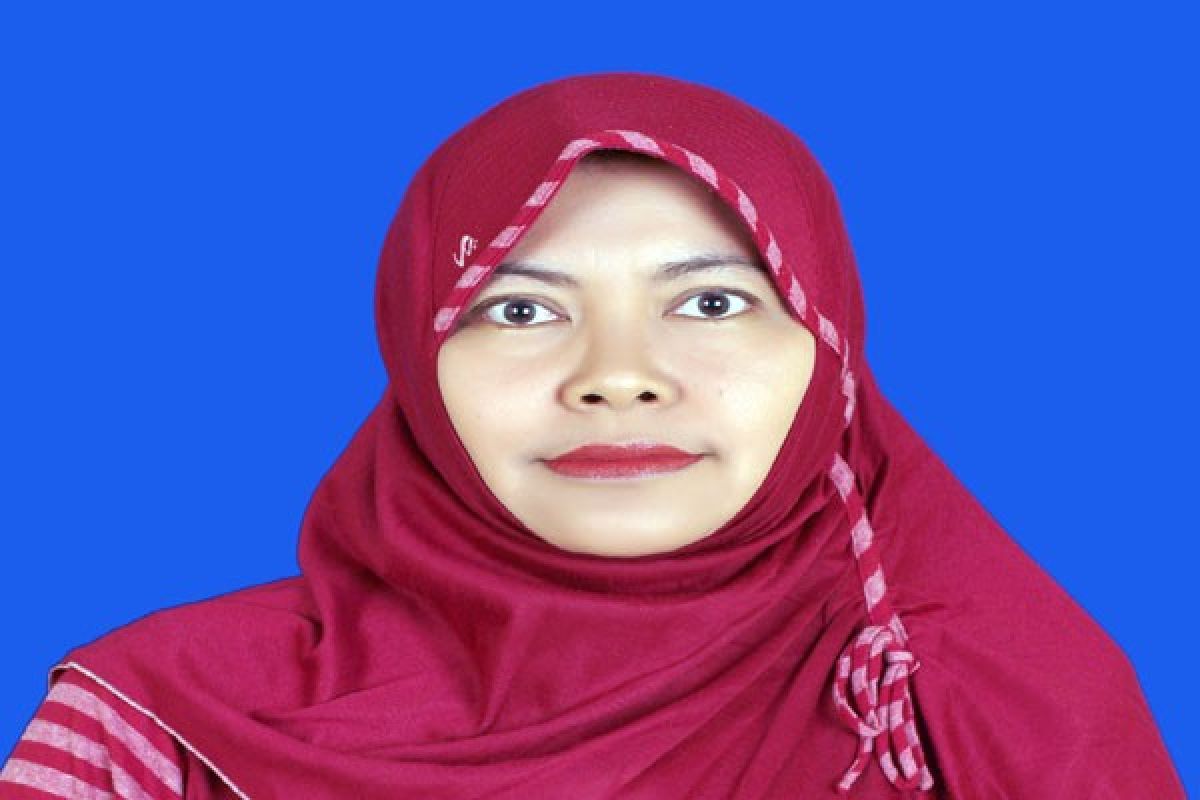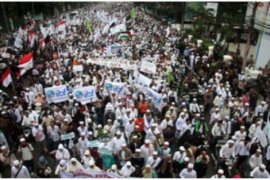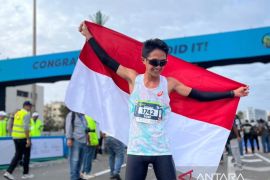According to data released by the Coordinator of the National Committee of Human Right of Freedom of Religion and Belief Desk (KBB), Jayadi Damanik, the number of cases of intolerance in Indonesia has increased significantly. National Committee of Human Right data recorded 74 cases of intolerance reported to the KBB Desk complaint post in 2014, rising to 87 cases by 2015, and nearly 100 cases by 2016 (Kompas, 5/1/2017).
Cases of intolerance are rampant in relation to freedom of religion and belief, such as banning religious activity, damaging houses of worship, discrimination on the basis of belief or religion, intimidation and coercion of beliefs. Intolerance it has contributed to the occurrence of acts of violence and human rights violations in Indonesia.
Meanwhile, data owned by the Police as disclosed by Kombes Awi Setiyono (Head of Police Public Relations Division), showed the occurrence of 25 cases of intolerance that occurred during the year 2016, especially in the form of prohibition to the destruction of houses of worship, such as cases of expulsion of adherents Gafatar and Ahmadiyah in Bangka in January 2016, the destruction of the reliefs of the cross in Yogyakarta and the relief of the Blessed Mother in Sleman in August 2016, the rejection of Shiites by the Islamic Forum in Central Java and the rejection of the mosque construction in Manado in September 2016.
The rise of intolerance cases that included mobilizations Mass potentially cause social violence to Police's attention. However, it is still unfortunate because there is the impression that the reaction of prevention and prosecution of perpetrators of social violence that occurred felt not effective.
The astonishing data related to intolerance was also released by SETARA Institute (16/2/2017) which recorded 208 incidents of intolerance and 270 intolerance measures in 2016. The perpetrators of this intolerance involved citizens, mass organizations, corporations and state actors in various forms including apostasy, Intimidation, hate speech, threats, banning the establishment of places of worship, destruction of property, to the forced dissolution of religious activities.
Note SETARA Institute also shows that West Java is the province with the highest intolerance number with 41 cases, followed by Jakarta (31 cases), East Java 22), Central Java (14), and Bangka Belitung (11). The increased incidence of intolerance is directly proportional to the increasingly permissive citizenship of ideas, concepts and actions rooted in radical understanding that is now more and more fertile in Indonesia.
The results of the National Survey titled "The Potential of Intolerance and Religious Social Radicalism among Indonesian Muslims" held by the Wahid Foundation in collaboration with the Indonesian Survey Institute (LSI) in 2016 show that although the majority of Muslims in Indonesia reject radicalism, there are 7.7% Radical action if there is a chance, and 0.4% have done a radical action.
In addition, the survey also found that 59.9% of respondents have hatred towards certain social groups, both ethnic, religious and political ideologies. The hatred is also followed by the rejection of political rights to sit in government, and to interact socially. Wahid Foundation's findings released in 2016 open our eyes that intolerance is an increasingly factual reality and a nursery for the development of radical understanding and action in Indonesia.
As a phenomenon of increasing intensity, intolerance is not only derived from the diversity of perceptions of beliefs and religions, but also about things that have political weight. Political interests are often the trigger factor and mengeskalasi intolerant perspective and attitude that can then develop into Forms of communal violence aggression. The competition of political interests between groups is manipulatively accompanied by the exploitation of latent individual or communal factors of identity as a means of mobilizing support. As a result, social tensions in solidarity in groups and out-front groups are diametrically in a horizontal conflict relationship.
Structural and Non Structural Problems
Referring to the Cambridge Dictionary, intolerance is defined as the fact of rejection of thoughts, beliefs or behaviors that are different from him. The Great Indonesian dictionary defines intolerance as not tolerant or intolerant.
Intolerant behavior is thus an attitude expressed to represent the rejection of all good aspects verbally and nonverbally just because it is different from ourselves. This attitude gives rise to a priori and labeling or stereotype to other individuals or social groups.
The process of dialogical interaction is democratic as the necessary conditions for building a common understanding so that differences can be well bridged becomes difficult to realize. In fact, the situation may worsen when certain political interests take advantage of momentum as a strategy in mass political competition.
Intolerance is a phenomenon that develops due to structural and non-structural factors. It must be recognized that the era of regional autonomy has spawned the wider regional authorities. At the same time, there are various regional policies that give privileges to certain groups and are discriminatory against other groups.
Allegedly, the existence of various sharia regulations has given birth to stereotyped views on certain social groups that eventually triggered intolerant action. Moreover, in many cases, many regional heads are subject to mass pressure due to political support when responding to intolerant events, for example the permissive attitude of the regional head in Sampang who seems to be doing an abandonment of the expulsion of Shiite citizens from their hometown. The mediation and conflict resolution function must be ineffective when the structural power holders cannot be fair and protect all interests.
Structural problems that trigger these intolerant actions can also occur because of the power practices that are not responsive to the potential for the development of exclusivism in society due to the narrow understanding of identity.
The weakness of the stakeholders in encouraging the ongoing communication action between social groups in the public sphere initiated By the state make identity issues undergo political commodification.Implikasiasinya is the destruction of the ability dialogis and the waning of social values that has been a reference for the community to overcome differences among them.
As a non-structural problem, intolerance is triggered by the commodification of social, cultural and religious values to justify certain interests. The preservation and transformation of values that legitimize intolerance leads people to live in hatred for each other and relax social cohesion. This is exacerbated by the proliferation of exclusive social groups that develop the belief as the sole possessor of the sacred mandate to interpret and live the traditions, beliefs and religious teachings. This understanding makes it easy to undermine and stigmatize other groups as threats to be eliminated.
Strengthening National Commitment
Intolerance is the first step towards acts of violence. In a broad scale, intolerance creates horizontal communal conflict. Diversity is considered a disaster because the intolerant group rejects the facts outside of themselves. They want homogenization that is in line with the values and beliefs held by force. As this controls power, undoubtedly the practice of authoritarianism becomes a form of applied power to ensure social uniformity.
The dominant group in power will determine the standard of value that is considered appropriate for other groups to follow. This intolerant perspective and attitude is a social pathology that can infest any social group, does not question whether a minority or a majority. Therefore, intolerance should be regarded as a collective threat of humanity universally.
The rise of the phenomenon of intolerance in Indonesia which is increasingly escalated by the elections should certainly be wary of. Intolerance can not be ignored because it will tear the joints of community harmony in diversity. Social values and institutions derived from the wisdom, traditions and identity of the nation must be restored to its function to guide people in interacting with each other, including resolving the various differences and social allusions that arise.
The social wisdom possessed by various elements of the nation must be a living reality in filtering and counteracting the emergence of intolerant ideology and understandings. All elements of the nation must realize that the diversity that exists in Indonesia is God's grate to be grateful, the social wealth that shows the greatness as a nation state.
Strengthening national commitment in countering intolerance is not the same as making Indonesia as a melting pot that merges all the diversity in one treasury, but to re-develop the spirit of solidarity, tepa selira, tolerance, mutual cooperation and sense of kinship. Diversity as a social fact must be accepted and can be assembled in a harmony that is attached by a shared vision of national and state life, and is based on the noble values of the nation. It is this that makes Pancasila the basis of the State has strong relevance and provides the foundation for efforts to strengthen national commitment.
In addition, intolerance should also be prevented by ensuring that intolerant worldviews and practices are not widespread affecting and shaping the mainstream in society. Misguided propaganda through social media and mass media that can trigger intolerant acts must be preventable and dikanalisasi from the public space.
This includes ensuring that intolerant practices should not be responded in the same way because they will only give birth to what Dom Helder Camara calls spiral of violence. The state can not allow the action of violent reaction due to intolerance. As an obvious example is the sweeping action that occurs in Central Kalimantan and North Sulawesi that displays the attraction of anarchism, although arguing as an expression of intolerance.
The state must be present in resolving cases of intolerance so that the public does not take shortcuts and get caught up in communal conflicts.
The positive punishment that applies can be coupled and synergized with the effort to restore social values that evolve in society as a means of social interaction. Law enforcement against the implications Arising from intolerant practices that result in various forms of aggression and violence should be directed at the prevention and fair deterrence effect.
The presence of the state in resolving cases of intolerance should reflect the state's commitment to protecting all peoples without favoritism, fairness and thoroughness. It is important to maintain public credibility and trust in positive law and enforcement.
*) The author is a researcher at the Center of Risk Strategic Intelligence Assessment (Cersia), Jakarta. Alumnus Universitas Udayana, Bali.
Counteracting the rise of Intolerance
Minggu, 18 Juni 2017 16:53 WIB

Otjih Sewandarijatun. (ANTARA FOTO/Ist/Dokumentasi Pribadi/Dok).
The state must be present in resolving cases of intolerance so that the public does not take shortcuts and get caught up in communal conflicts.









